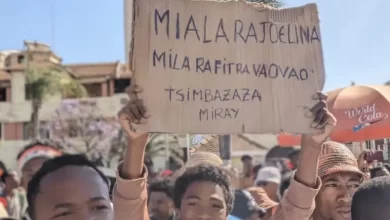How Climate Change Lawsuits Are Shaping Africa’s Legal and Environmental Future
By: Noah Smith

In a time when climate change poses an existential threat, courts across the globe have become arenas for justice in environmental protection. Africa, a continent disproportionately affected by climate change despite its minimal contribution to global emissions, is witnessing a rise in climate change litigation. These lawsuits serve not just as legal disputes but as battlegrounds for policy reform, corporate accountability, and environmental justice.
The Global Surge in Climate Litigation
Globally, over 2,000 climate-related lawsuits have been filed in recent years, with plaintiffs targeting governments, corporations, and financial institutions for their roles in exacerbating or failing to mitigate climate change. The 2021 Milieudefensie v. Shell ruling in the Netherlands, which ordered Royal Dutch Shell to reduce its emissions by 45% by 2030, set a precedent for corporate accountability. Such cases have inspired activists and governments in Africa to pursue similar legal avenues.
Africa’s Climate Litigation Landscape
Africa has seen a gradual increase in climate change lawsuits. These cases highlight the intersection of environmental degradation, human rights, and socio-economic inequalities. Notable examples include:
1. Okpabi v. Shell (Nigeria)
In 2021, Nigeria became a focal point for climate litigation when the UK Supreme Court allowed a group of Nigerian farmers and fishermen to sue Shell for oil spills in the Niger Delta. This case underscored the link between environmental harm, corporate negligence, and human rights violations, setting the stage for climate litigation targeting multinational corporations operating in Africa.
2. The South African Climate Case Against the Thabametsi Power Plant
In 2017, South African environmental activists successfully challenged the government’s approval of the Thabametsi coal-fired power plant. The court ruled that the plant’s environmental assessment had failed to adequately account for its climate impacts, halting its construction. This landmark case highlighted the role of judicial systems in enforcing climate-conscious policies.
3. Kenya’s Battle Over the Lamu Coal Plant
In Kenya, the National Environment Tribunal blocked the construction of the Lamu Coal Plant, citing its failure to meet environmental standards. The tribunal emphasized the plant’s potential harm to ecosystems and local communities, illustrating the legal system’s capacity to prioritize sustainability over economic projects.
Legal Tools and Arguments in Climate Litigation
Climate litigation in Africa often employs a mix of constitutional, human rights, and environmental law arguments. Plaintiffs frequently invoke:
- Constitutional Rights: Many African constitutions guarantee the right to a clean and healthy environment, providing a strong legal basis for challenging environmentally harmful projects.
- International Agreements: Treaties such as the Paris Agreement and the African Charter on Human and Peoples’ Rights are cited to hold governments accountable for climate commitments.
- Corporate Responsibility: Cases like Okpabi v. Shell highlight the role of corporate entities in perpetuating environmental harm, emphasizing the need for stringent regulations and enforcement.
Challenges in Africa’s Climate Litigation
Despite its promise, climate litigation in Africa faces significant hurdles:
- Resource Constraints: Many plaintiffs lack the financial resources to sustain lengthy legal battles.
- Judicial Capacity: Courts often lack the expertise to handle complex climate cases, necessitating specialized training for judges and lawyers.
- Political Interference: Governments’ vested interests in resource extraction can undermine judicial independence.
A Call for Proactive Legal Strategies
To strengthen Africa’s climate litigation efforts, the following measures are critical:
- Building Judicial Capacity: Training programs on environmental law and climate science for judges and lawyers.
- Strengthening Legal Frameworks: Enacting and enforcing robust environmental regulations aligned with international standards.
- Empowering Communities: Providing financial and legal support to affected communities to access justice.
The Way Forward: Litigation as a Catalyst for Change
Climate litigation in Africa has the potential to transform the continent’s environmental and legal landscape. Beyond securing justice for affected communities, these cases signal to governments and corporations that climate inaction carries significant legal risks.
As Africa continues to bear the brunt of climate change, its courts are emerging as crucial arenas for the fight against environmental injustices. By embracing climate litigation, Africa can not only protect its natural heritage but also lead the global charge for a sustainable future.




